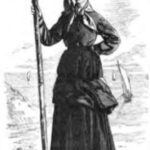Theatrical performances became very important in cities as dynamic as modern Barcelona. Social mobility and the emergence of new bourgeois groups thanks to remittances from overseas generated an increasingly affluent social class. Theatrical performances became so important that they began to be organised on the initiative of private individuals. The economic power of the patrons allowed the organisation of splendid plays thanks to their access to exclusive costumes and materials. Access to these plays was also a space for recognition among the elite, whether among the nobility or the emerging bourgeoisie (social opulence). In a context such as that of 1830, after the experience of the Liberal Triennium, it is understandable that Ferdinand VII censored this type of meeting, fundamentally for fear of the conspiracies that could be orchestrated against him due to the social nature of this type of clandestine meeting.
Collection: Texts
Chronology: XIX
Scope: Secondary Education, Baccalaureate, University
Link: https://rua.ua.es/dspace/bitstream/10045/28458/1/RHM_30.pdf
Resource type: Historical source
Source: Artís, J.: Tres conferències sobre Teatre Retrospectiu de Catalunya. Barcelona, 1933. pp. 35-37
Language: Spanish
Date: 1830
Owner: Djebril Bouzidi (Modernalia)
Identifier: Artís, J.: Tres conferències sobre Teatre Retrospectiu de Catalunya. Barcelona, 1933. pp. 35-37
Abstract: Circular promulgated by Ferdinand VII in 1830 against performances in private homes
Tags





